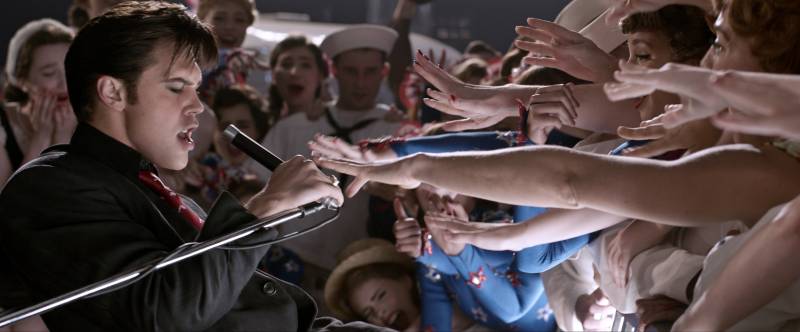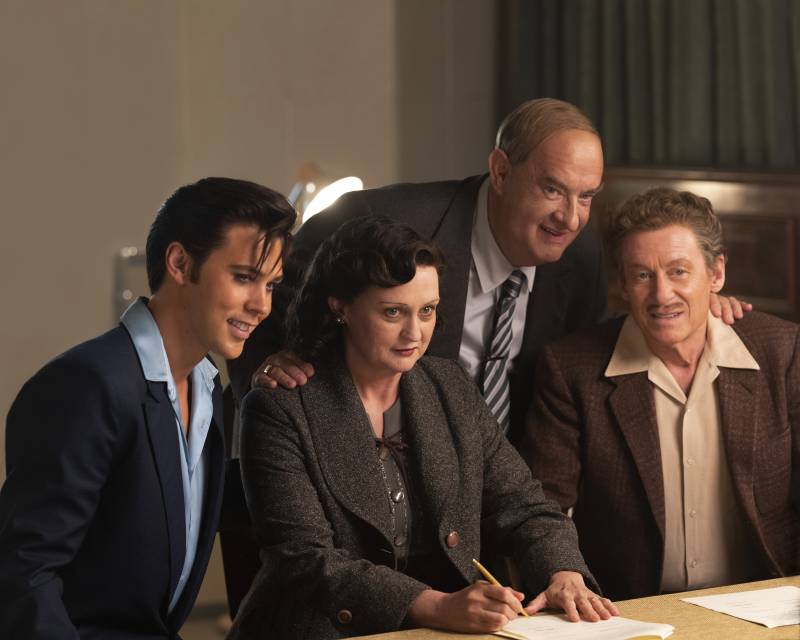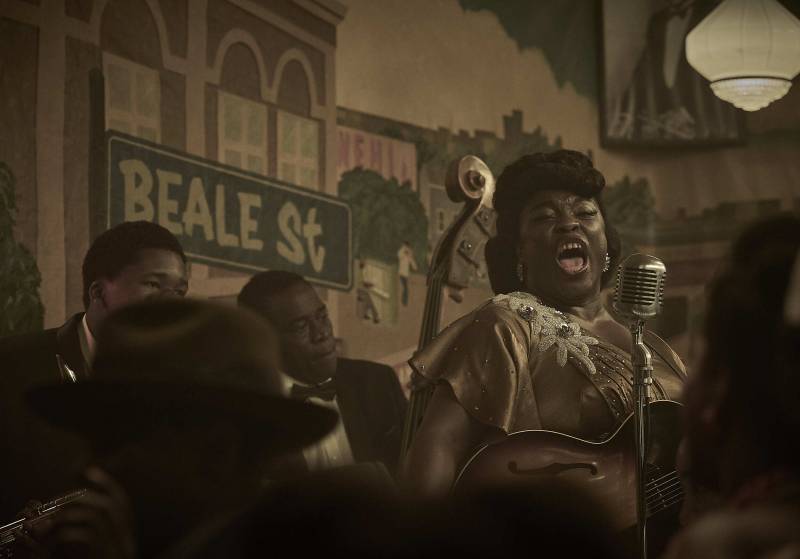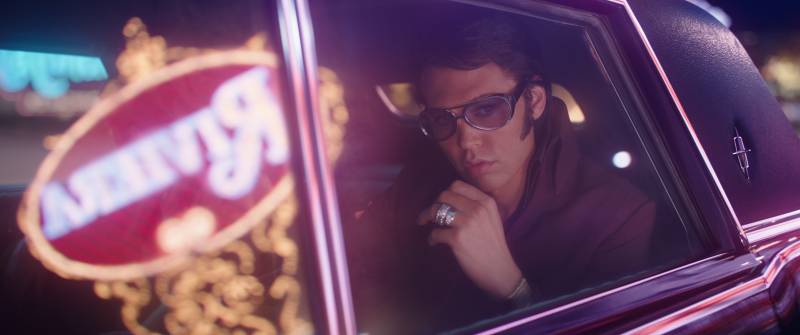
Any review of Elvis—the groaning, glitzy smorgasbord opening June 24, co-written and directed by Baz Luhrmann, the Australian filmmaker whose credo since Strictly Ballroom (1992) is “nothing succeeds like excess”—must begin by acknowledging that Elvis Presley is a sequin-encrusted figment of our mythmaking machinery.
That is, everybody thinks they know Elvis’s story and, consequently, everybody thinks they know Elvis. He is immortal. But the realm of immortality is assuredly not the world of reality.
The same could be said of any number of pop-culture touchstones. Marilyn Monroe, Abraham Lincoln and Jesus Christ. Princess Diana and Dr. Martin Luther King, Jr. Lesser icons Jimi, Janis and Jim, as well as Jerry and Kurt, all have bungalows adjacent to the main house. Each has been masticated, milked and massaged to the point where it’s nearly impossible for any movie to offer a fresh perspective or a new insight. A film can only engage in dialogue with the myth, and either repeat, rehash or reject it (and who’s that brave or foolhardy?).

Luhrmann’s preposterous entry point is appointing Elvis’s manager and manipulator, Col. Tom Parker, as omniscient narrator. This calculating, ruthless parasite is the last person on Earth through whose eyes we want to see Elvis Presley. The character’s odiousness isn’t remotely mitigated by the casting of All-World good guy Tom Hanks, who plays the Colonel as a cross between Lyndon B. Johnson and the Penguin (another cigar-waving Warner Bros. villain) with a grotesque Mittel European accent.
The film’s conceit is that Parker was a huckster, a carnival-sideshow booster, a conman with an eye for talent and the knowhow to pick American pockets. Presley was Parker’s ticket from the big top to the big time, his unwitting puppet: a singular yet unformed talent, innocent yet sexy, ambitious yet devoted to his mother, a white admirer (and assimilator) of Memphis blues and gospel with more charisma than Brando or Dean.

Luhrmann presents this garish, sordid chunk of 1950s Americana in a rapid-fire, almost assaultive series of flamboyant set pieces. When he grants us a reprieve from the barrage by way of heart-to-heart conversations—Parker and Elvis atop an amusement park Ferris wheel, Elvis and his mama in her bedroom—the dialogue is so cloying and the performances so blatantly caricaturistic that we yearn for the blender to start up again.


